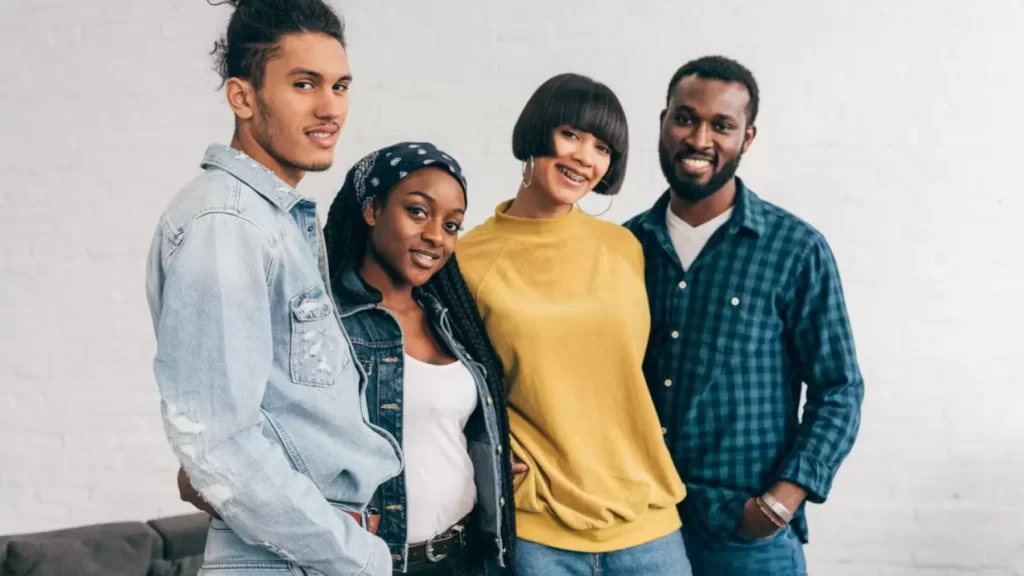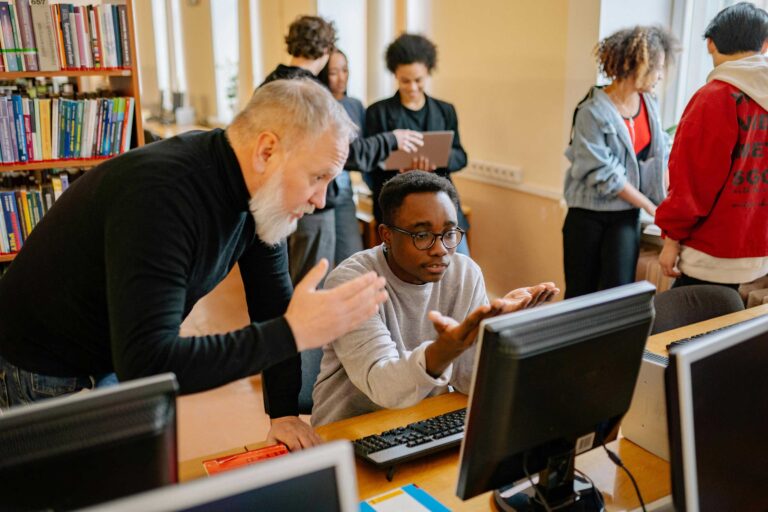You may have heard the phrase, ‘pull yourself up by the bootstraps,” when faced with failure, adversity, or disappointment. This phrase is referring to resilience, or “the process of adapting well in the face of adversity, trauma, tragedy, threats, or significant sources of stress…it can also involve profound personal growth.” (APA, 2020) Resilience has recently become a mainstream, buzz word that is used across fields and settings. Educators, professionals, and books such as Rising Strong (Brown, 2015) often share the message that we face challenges, but the ‘bounce back’ from the challenges is what defines resilience.
As a gay, Latino, and son of immigrants, I certainly have had my share of resilient moments. Whether it was failing a test in college or being bullied for my identities, I learned quickly that you must keep going, no matter what. I also realized that there are some situations in which this bounce back looks different. It wasn’t until I saw Justice Sonia Sotomayor’s interview in which she famously said “not everyone can pull themselves up by their bootstraps,” that I realized that resilience is a multi-layered and complex concept, particularly for Black, Brown, and Indigenous folks. Justice Sotomayor extended the bootstrap analogy and acknowledged that “no matter how tall the heel on your boot is, the barrier is so high, you need a small lift.”
For Black, Indigenous, and other People of Color (BIPOC), generations of trauma, systemic racism, and cultural barriers lead to resilience looking very different than what we have taken it to mean in our society. This is not to say that we should discard resilience. In fact, I would say we should pay more attention to it. While resilience can be developed, we should consider how some have no choice but to be resilient. For BIPOC such as myself, being resilient is an act of resistance and survival, while we also celebrate the joys across and within each community.
With this in mind, we should reconsider how we think, discuss, and implement resilient strategies. When I asked my BIPOC colleagues about their own definition of resilience, it was clear that there is more to resilience than simply acknowledging a set-back, processing, and moving on.
For example, some said:
“I have come to know that being resilient is to not have to seek validation from others but to honor and uplift myself despite messaging from the outside world.”
“Being resilient, for me, in this current moment looks like having the ability to see past my current situation and know that there is a bigger purpose. This is not done without challenges because I’m correcting learned behaviors but there is power on the other side.”
“I personally have a love/hate relationship with that term. For generations resiliency has been why people of color have survived and thrived. A bi-product of resiliency is the underestimation of need (of an individual or collective) or the creation of a short list of rules that define how a group of people must handle adversity. It is my hope that “we” will make more room for humanity when making reference to that term. I hope we do not allow being “resilient” prevent us from expressing empathy, vulnerability etc. to each other”
When discussing resilience, we must acknowledge and center the narratives and history of BIPOC community members. This can look like listening to BIPOC, learning about the actual history of a community, and reading books by BIPOC. It is critical to understand and take this important context into consideration. The multiple identities that BIPOC hold lead to them to process and apply resilience strategies differently. I encourage BIPOC to not only seek counseling, but also seek counseling from therapists that align and affirm their identities.
When implementing resilience, too, we should be careful in how we tell BIPOC to be resilient. Often, the strengths of BIPOC communities are overlooked. For example, research has shown that in Black communities, despite the risk for negative outcomes, many are able to overcome the negative consequences and experience a positive life (Brown, 2008). Aspects of the different BIPOC communities, such as learning the history of their community or an extended support group, can help overcome failures, challenges, and trauma.
Although this year has presented several challenges, I am reminded again about the strengths of my communities and how I have shown resilience throughout my life. When considering how I “pull myself up by the bootstraps,” I also think about taking them off, understand how they were made, and putting them on once I am ready to walk again.
Gustavo A. Molinar, M.A. (he/him/his/él) is currently the Mental Health Literacy Specialist for Mental Health America of Greater Houston. Informed by his identities as a queer Latino man, Gustavo is dedicated to working with and for communities, helping uplift those who have been traditionally marginalized. Originally from Houston, TX, he holds his bachelor degrees from The University of Texas at Austin and his master’s degree in Higher Education and Student Affairs from The Ohio State University. He has worked professionally in residence life, student wellness, and multicultural affairs and has taught social justice courses. In his spare time, Gustavo enjoys running, photography, and traveling.
Sources:
American Psychological Association (2020). Building your resilience. Retrieved from: https://www.apa.org/topics/resilience
Reichard, R. (2017). Justice Sonia Sotomayor keeps it real (again): Not everyone can pull themselves ‘Up by the bootstraps.’ Retrieved from: http://www.latina.com/lifestyle/politics/sonia-sotomayor-inequality-pulling-up-by-bootstraps
(Other References):
americanprogress.org/issues/race/news/2017/12/18/444235/resilient-power-black-community/
https://vakids.org/our-news/blog/whyblackchildrenhavetoberesilient
https://www.tandfonline.com/doi/pdf/10.1080/00438243.2018.1510340?needAccess=true
https://www.tandfonline.com/doi/full/10.1080/00438243.2018.1510340
https://link.springer.com/referenceworkentry/10.1007%2F978-0-387-71799-9_115


